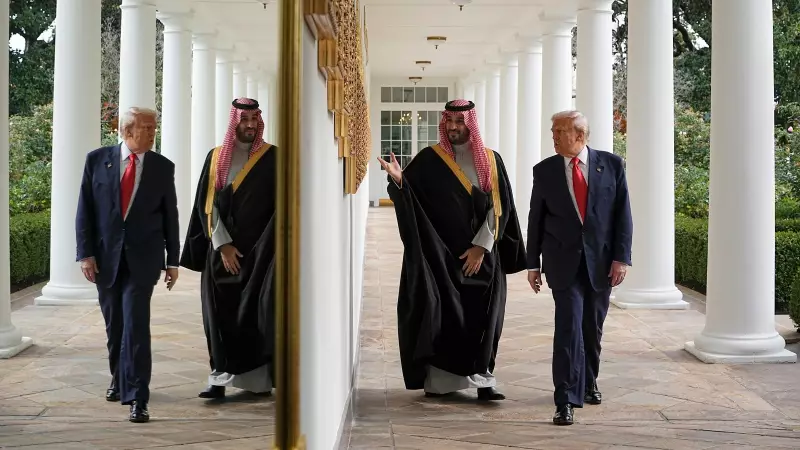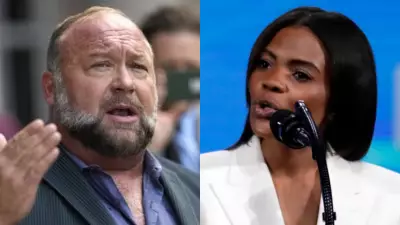
In a remarkable political transformation, Saudi Crown Prince Mohammed bin Salman has completely reset relations with the United States, establishing himself as an indispensable regional power broker who negotiates from a position of strength rather than supplication.
From Pariah to Power Player
The journey of Mohammed bin Salman, commonly known as MBS, from international outcast to influential global leader represents one of the most dramatic turnarounds in modern diplomacy. Just five years ago, the Crown Prince faced widespread condemnation and isolation following the brutal killing of journalist Jamal Khashoggi in 2018. World leaders, including US President Joe Biden, had vowed to make him a "pariah" on the global stage.
Today, the reality could not be more different. The 38-year-old de facto ruler of Saudi Arabia now meets with world leaders as an equal, driving hard bargains that serve Saudi interests first. The recent diplomatic activity tells the story clearly: Chinese President Xi Jinping visited Riyadh in December 2022, followed by multiple high-level American officials making the pilgrimage to seek Saudi cooperation.
The transformation became particularly evident when President Biden, who had once promised to treat Saudi Arabia as a "pariah" state, traveled to Jeddah in July 2022 and fist-bumped the Crown Prince. This symbolic gesture marked the official end of MBS's international isolation and recognition of his unchallenged authority within the kingdom.
Strategic Recalibration of US-Saudi Relations
The reset in US-Saudi relations hasn't followed the traditional pattern of American dominance. Instead, Mohammed bin Salman has established new terms of engagement that prioritize Saudi Arabia's national interests while maintaining the strategic partnership.
Several key factors have contributed to this power shift. The global energy crisis triggered by Russia's invasion of Ukraine positioned Saudi Arabia, as the world's largest crude exporter, at the center of international economic stability. Meanwhile, Saudi Arabia's growing relationships with China and Russia have provided alternative partnerships that reduce its dependence on Washington.
The Crown Prince has demonstrated his willingness to pursue independent policies that sometimes directly contradict US interests. In March 2023, Saudi Arabia restored diplomatic relations with Iran through a China-brokered deal, surprising American officials who had been kept largely in the dark about the negotiations.
Similarly, on oil production, MBS has repeatedly shown that Saudi priorities come first. In October 2022, Saudi Arabia led OPEC+ in announcing production cuts despite US pressure to increase output to help Western economies struggling with inflation.
The New Middle East Order
Mohammed bin Salman's diplomatic strategy reflects his broader vision for Saudi Arabia's future. The Crown Prince is aggressively pursuing his Vision 2030 plan to transform the Saudi economy away from oil dependence while establishing the kingdom as a regional hub for technology, tourism, and innovation.
His approach to international relations combines economic diversification with strategic autonomy. Saudi Arabia continues to seek American security guarantees and advanced military technology while simultaneously building partnerships with China for technology transfer and economic cooperation.
The changing dynamics extend beyond bilateral relations. Saudi Arabia is now playing a central role in shaping regional stability, from engaging with Syria's Bashar al-Assad to pursuing normalization with Israel under conditions that serve Palestinian interests better than previous proposals.
This recalibration of power reflects a broader global shift where middle powers like Saudi Arabia are leveraging their strategic assets to maximize autonomy in an increasingly multipolar world. The Crown Prince has skillfully navigated this new landscape, transforming from isolated heir to influential statesman who sets the terms of engagement with the world's superpowers.
As one Western diplomat noted, the message from Riyadh is clear: Saudi Arabia remains a valuable partner, but the relationship must be based on mutual respect and shared interests rather than American dictates. The era of one-sided dependence has ended, and Mohammed bin Salman has emerged as the architect of this new chapter in US-Saudi relations.





